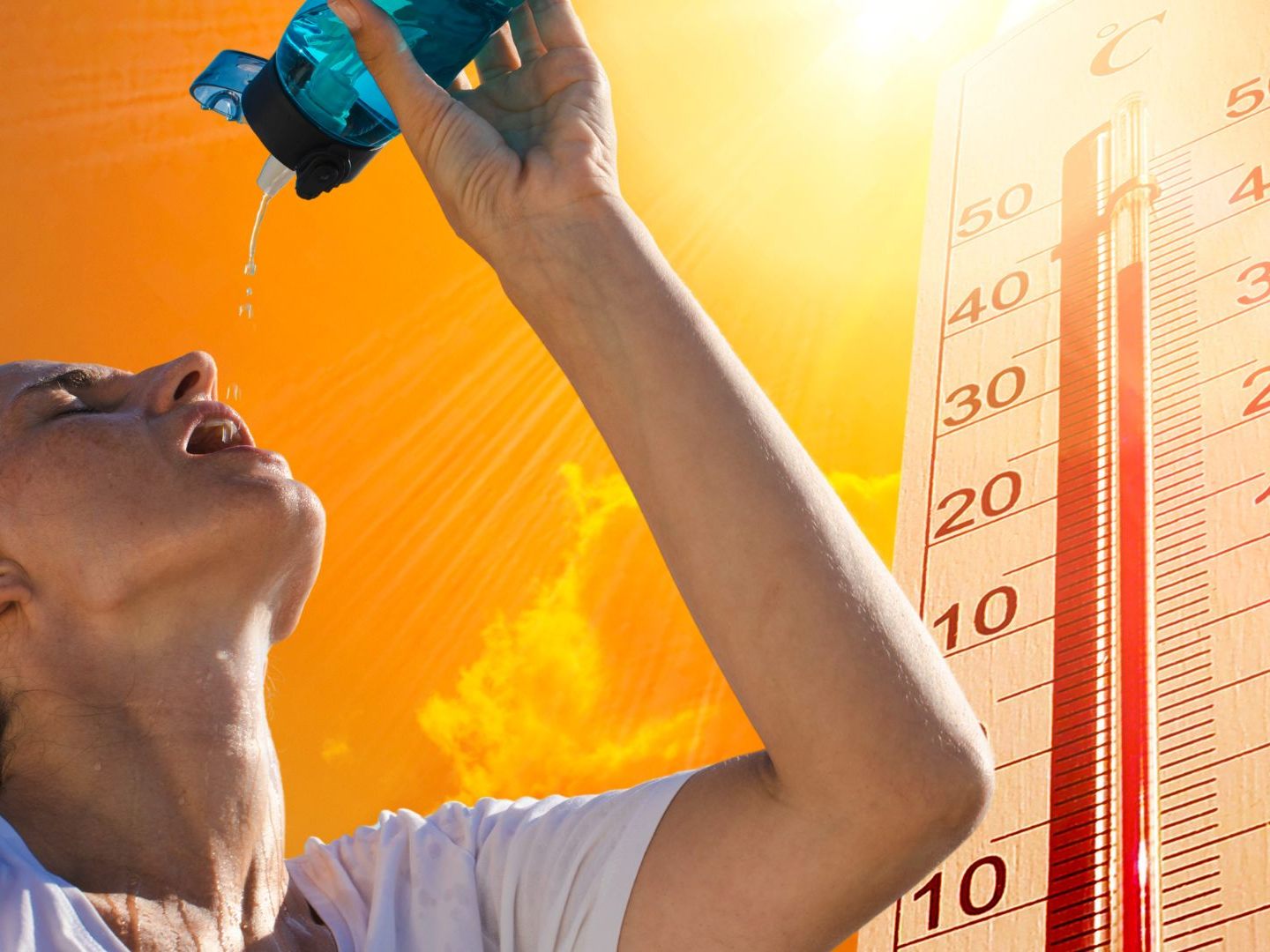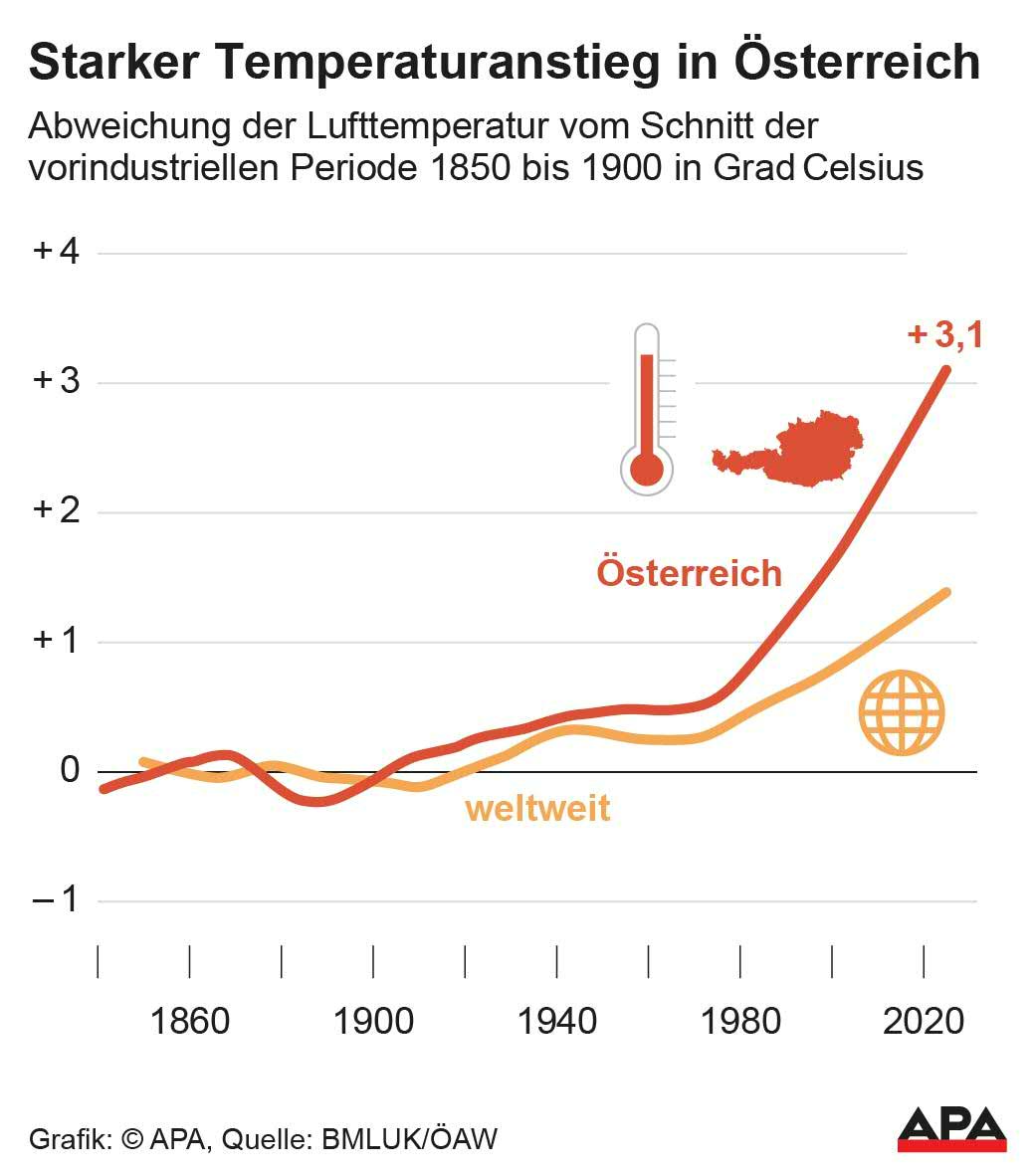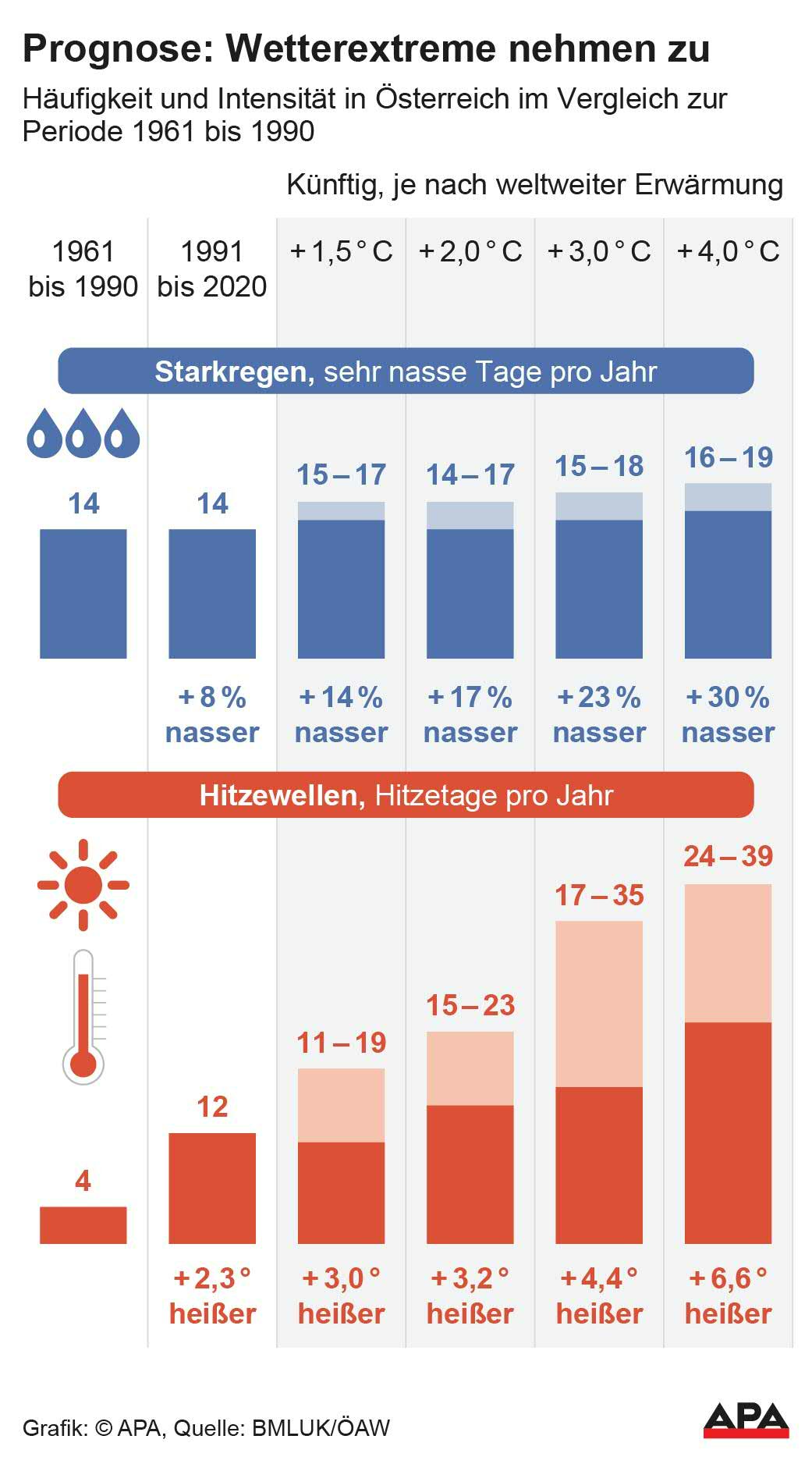Austria is Heating Up Rapidly: Climate Experts Sound the Alarm

200 scientists from 50 institutions have created an interdisciplinary overview of the impacts of the climate crisis in Austria over the years. The result is the approximately 800-page "Second Austrian Assessment Report on Climate Change" (AAR2), whose main statements were presented on Tuesday in Vienna. "The report shows a great need for action that affects us all," was the conclusion of Environment Minister Norbert Totschnig (ÖVP).
Temperature increase of 3.1 degrees since 1900
The assessment report not only shows the threats due to global warming, but also presents options for action - and calls for massive investments. "We are working at full speed on a climate protection law. The central concern is CO2 reduction, decarbonization, and climate change adaptation," defined Totschnig the political framework for action.

On average, it is already 3.1 degrees Celsius warmer compared to the year 1900 - with a rising trend. The impacts on land, people, and the environment are significant. To counteract this and avoid tipping important systems, investments between 6.4 and 11.2 billion euros per year are required according to the authors. Political processes need to be reconsidered. "The consequences of the climate crisis endanger our prosperity and exacerbate social inequalities here as well," said Margreth Keiler from the University of Innsbruck and the ÖAW, co-chair of the assessment report. The report emphasizes that realistic, socially acceptable, and economically viable paths to climate neutrality are available.
Global warming poses enormous risks for agriculture, tourism, cities
In the problem outline, the report, which is aligned with the logic of the reports of the Intergovernmental Panel on Climate Change (IPCC) and is approximately 800 pages long in its full version, is clearly formulated: Austria is one of the countries that is already "significantly more heated than the global average." And the situation is escalating: Since the 1980s, there has even been an increase of about 0.5 degrees per decade. As a result, the frequency of extreme weather events such as droughts and heavy rainfall, as well as late frost, is increasing, and heatwaves have become longer and more intense compared to the period 1961-1990.

This affects water availability, for example, in agriculture, ski tourism, where fewer days with natural snow cover need to be compensated, the now rather meager remnants of Austria's glaciers, and heat stress, especially in urban areas of the country. "With increasing heating, adaptation limits are exceeded in regions such as the Alps, in water-scarce or heavily sealed areas," states the core statement document of the report. The previous risk management reaches "its limits with complex, cascading hazards," "which potentially results in irreversible damage to society, infrastructure, and ecosystems."
Scientists Warn: Trend Points Towards Plus Four Degrees
Looking at the current global trend, we are heading towards an increase of "significantly more than four degrees Celsius compared to pre-industrial times" in our regions, according to the more than 200 scientists involved in the paper. It is the second of its kind following the premiere in 2014, funded by the Ministry of Agriculture through the Climate and Energy Fund and implemented by the Austrian Panel on Climate Change (APCC).
As chairpersons of the panel, alongside Keiler from the University of Innsbruck and the Academy of Sciences (ÖAW), are Daniel Huppmann and Keywan Riahi (both from the International Institute for Applied Systems Analysis IIASA, NÖ) and Harald Rieder from the University of Natural Resources and Life Sciences (Boku) in Vienna.
NGOs Want Action and Criticize Environmental Policy
Domestic environmental organizations have unanimously called for swift consequences in response to the published "Second Austrian Assessment Report on Climate Change" (AAR2) - and criticized the government in the process. Politics must listen to science "and act immediately," said the WWF. Global 2000 opposed the "red pen" in climate protection, and Greenpeace warned that without action, the future would become even worse.
In light of the report, Global 2000 also emphasized that it provides grounds for hope: "They (the further chapters of the AAR2, note) show fields of action for politics and the economy that could finally put us on the target path," stated spokeswoman Hannah Keller. However, a socially just transformation of the economy and society would only succeed "if prosperity is detached from the dependence on fossil fuels, land sealing, and excessive resource consumption," Keller concluded.
Nature as an "Ally" Against the Climate Crisis
The WWF also advocated for "preventive investments in truly effective climate protection measures and diverse natural spaces." An intact nature is an indispensable ally against the climate crisis, argued Karl Schellmann from the WWF. He cited examples such as free-flowing rivers, which would serve as natural protection during floods, as well as "intact moors and mixed forests," which in turn provide habitat for numerous animals and serve as CO2 storage.
The status report also led to renewed calls for the abolition of so-called climate-damaging subsidies. For example, the mobility organization VCÖ stated that the current federal government's budget was a missed opportunity. "On the contrary, the NoVA exemption for diesel transporters and the tripling of the commuter allowance increase the climate-damaging subsidies instead of reducing them."
FFF Want Climate Protection Law with Responsibility
"Fridays for Future" responded in a statement to the climate protection law announced by Environment Minister Norbert Totschnig (ÖVP) for the summer. It would be effective "if not only the path with sector targets is anchored, but also clearly states who is responsible if the targets are missed," demanded Laila Kriechbaum, spokesperson for "Fridays For Future." Otherwise, it would only be lip service, akin to a New Year's resolution on New Year's Eve. Instead, "a strong climate law, more money for renovations and heating exchanges, and a real boost for renewable energy" are needed, said Jasmin Duregger, climate and energy expert at Greenpeace in Austria.
Criticism of budget cuts also came from Katharina Rogenhofer, head of the "Kontext" institute: "About a third of the total savings in the double budget 2025/26 affect the climate sector. Especially here, the savings could prove to be a boomerang for budget consolidation," she said, referring to climate targets. Because with the penalty payments if Austria does not meet the EU climate targets, a billion-euro Damocles sword would hang over the budget.
More Risk in the Alpine Area
The climate protection NGO "Protect Our Winters" and the Austrian Alpine Club warn of the already visible and upcoming impacts of climate warming on sports, infrastructure, and living space in the alpine area. Increased rockfalls and the retreat of glaciers and permafrost mean more risk and higher maintenance efforts. "The Alps are among the regions in Austria most affected by the climate crisis," it was stated.
"There is a red alert in Austria," was the conclusion of Leonore Gewessler, spokesperson for climate protection and energy for the Greens. She did not see any corresponding reactions from the three governing parties: "SPÖ and NEOS spoke extensively about consistent climate protection during the election campaign, but currently, little seems to be left of it. Both are watching while the ÖVP advocates at the EU level for weakening climate targets, dismantling environmental protection in the supply chain law, or in the forest protection law," Gewessler was quoted in a statement.
(APA/Red)
This article has been automatically translated, read the original article here.





